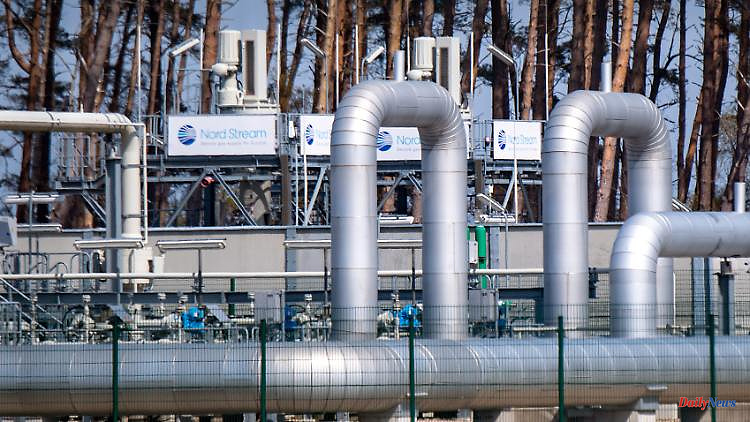Does Putin even turn on the gas tap again? This question causes fears in this country. But according to Moscow, the restart of Nord Stream 1 is mainly due to the behavior of the West and the "unilateral" sanctions.
The Russian Foreign Ministry is promising a resumption of gas supply via the Nord Stream 1 pipeline, but has cited Western sanctions as a possible obstacle. The resumption of deliveries depends on demand in Europe on the one hand, but also on "unilateral" sanctions on the other, said ministry spokeswoman Maria Zakharova in Moscow.
The current maintenance of the pipeline has been agreed with the customers. The work is expected to be completed by July 21. The German government fears that Russia will not be able to resume deliveries afterwards, which would have a massive impact on the gas supply. Only the day before, the Russian state-owned company Gazprom said it could not make a forecast for the reopening of the Baltic Sea pipeline because it lacked the necessary information.
"As for the future work of the gas pipeline, much will depend on the demand of our partners and illegitimate sanctions," Zakharova said, according to the Interfax agency. She also referred to the turbine being serviced in Canada, which, according to Russian information, is essential for the restart of Nord Stream 1.
Canada initially refused to deliver the turbine because it would fall under the national sanctions regime. In the meantime, however, the government has agreed to initially deliver the turbine to Germany. From there it is to be passed on to Russia. The European Union has not yet imposed sanctions on Russian gas, which is why supplying it from Germany would be legal.
After the Nord Stream 1 pipeline was blocked on Monday, the German gas storage facilities did not fill up any further. From Monday to Tuesday, the storage level fell slightly for the first time since April, according to data from the European storage operators and the Federal Network Agency. The reservoirs are now about 64.5 percent full on average. In the summer, they are supposed to be filled with gas for the winter, until they are 90 percent full in winter.












